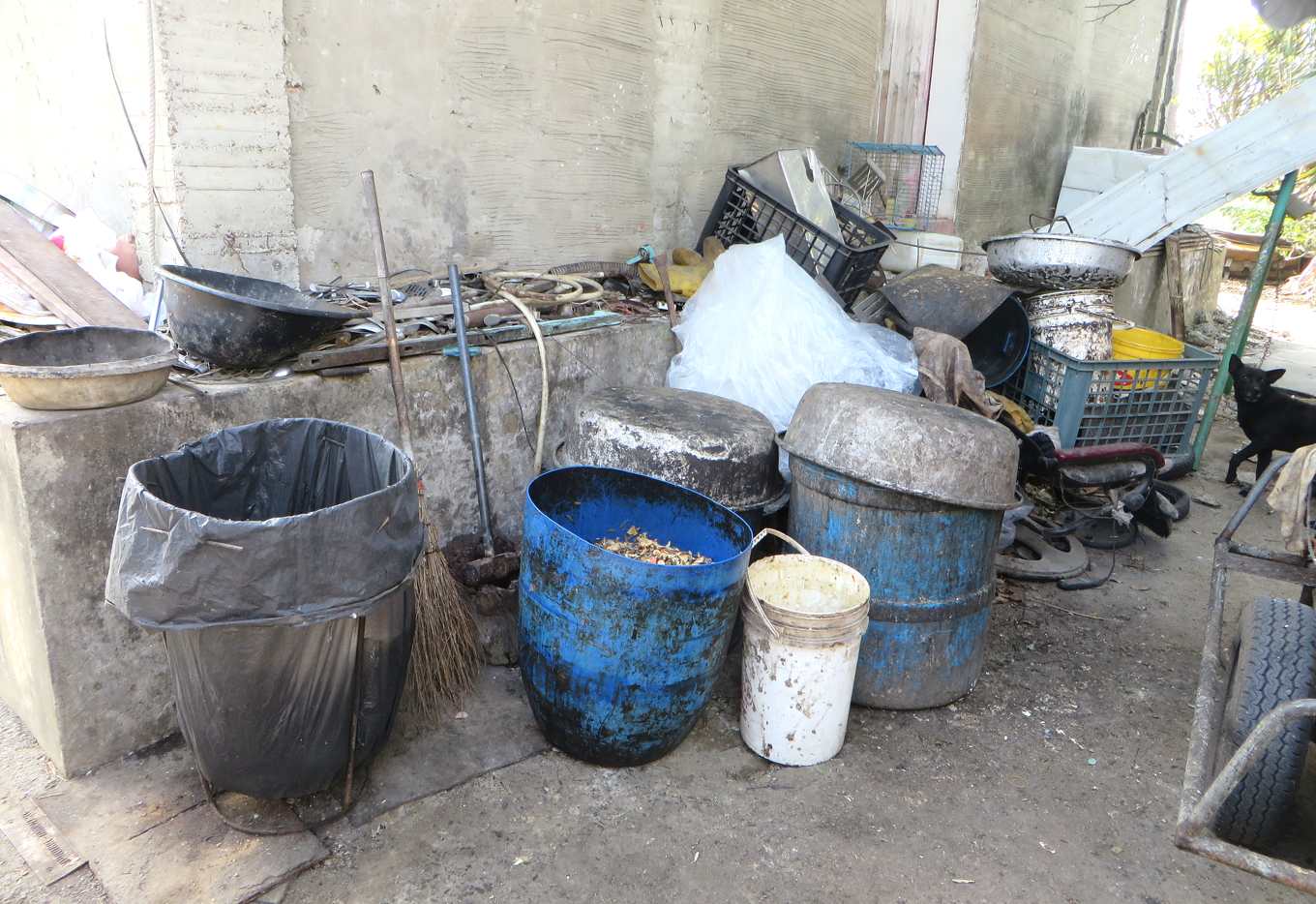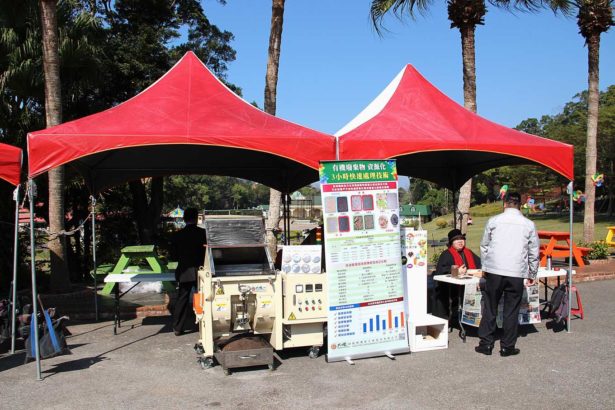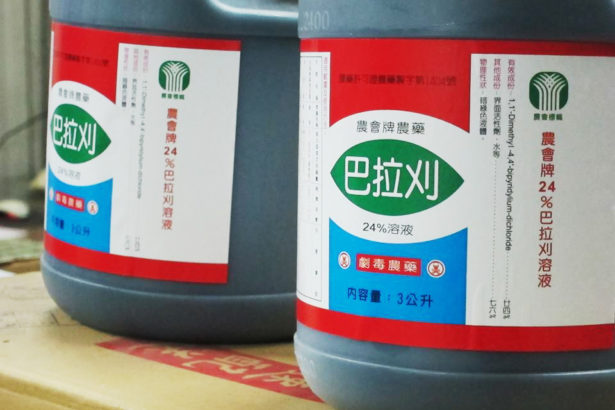Epidemic Prevention and Kitchen waste Battle 11 "(Changhua Chiayi County and City) Total inventory of Kitchen waste production and removal capacity in Taiwan
Share + 1 Tweet Email
(upstream and downstream journalists Duan Yaxin and Lin Xiejun / tr. by Phil Newell)
If African classical swine fever breaks out tomorrow, food waste will immediately become a battlefield. Are all places ready? "upstream and downstream" contact local environmental protection bureaus for first-line information. This article is aimed at Changhua and Chiayi counties. Please read the special series for other counties and cities.
(background note: the following food waste recycling figures are official statistics, but many food waste pig farmers say that the official statistics on food waste are not accurate, because there has been a long-standing situation of "reporting more than food waste" in the process of food waste recycling. Private operators drive minivans with buckets of food waste on them, so they accept them everywhere, mostly for households, snack bars and night markets, which may not be included in the statistics. )
Changhua County: about 119 tons of kitchen waste is in circulation every day, and cooked kitchen leftovers used to raise pigs.
Changhua County Environmental Protection Bureau said that at present, household kitchen waste recycling is about 16.6 tons per day, and professional kitchen waste is between 16.6 and 33.3 tons. If you add in the kitchen waste that has not been recycled to the cleaning team and is in circulation, it is about 119 tons per day.
At present, the raw kitchen waste recovered by the cleaning team is treated as compost. Ye, head of the Environmental Engineering Section of the Environmental Protection Bureau, said, "compared with cooked kitchen waste compost, there will be less protest." therefore, last year, Changhua County began to strictly implement the classification of raw and cooked kitchen waste. The raw kitchen surplus is mainly handled by the Tianwei publicly-owned composting plant, which can handle about 300 tons per day. It has declared with the central government that it will expand the composting capacity and land application process, with the goal of expanding the composting capacity to 600 tons. On the other hand, cooked food waste is handed over to pig farmers to feed pigs.
If it is forbidden to raise pigs after cooking, the incineration plant will be advanced in the short term, and the center of composting and biomass energy will be oriented in the long term.
If raising pigs with food waste is prohibited, what is the corresponding action of Changhua County? Chief Ye said that the reduction steps such as crushing and draining water will certainly be done first. in the short term, the incineration plant will be advanced before the facilities come in, and in the medium term, it will be treated by composting. In the long run, it will be in line with the overall planning of the central government. Food waste should be removed through the biomass energy center. However, bioenergy, whether it is cost, land construction, equipment, and so on, takes time. "this is the goal that we want to achieve in the long run."
As for the capacity of the incinerator in Changhua County, Ye said that after deducting the "general waste" and "industrial waste" that must be disposed of, there is still a surplus of 60 tons to burn other things.
Xifu is the source of kitchen waste treatment. Changhua City requires strict classification of raw and cooked kitchen waste.
Ruan Shunning, director of the Changhua County Environmental Protection Bureau, said that "cherishing Fu" is the source of food waste disposal, and it is also the most solvable link. Section Chief Yeh also said that whether it is composting, incineration, or bioenergy, it is certainly a way to "dispose" of food waste, but if the amount of food waste is not reduced, the subsequent "way" is only a temporary cure, and we really need to get to the root of the problem. or we have to start with the people, restaurants, and everyone who eats.
And the local cleaning team in Changhua also has something to say. Zeng Youxin, head of the Changhua cleaning team, said that when food waste is recycled in Changhua City, food waste will be divided into two parts: raw kitchen waste and cooked kitchen waste. "because the treatment is different, it will be collected in two categories from the very beginning." At present, the daily recovery of food waste in Changhua City is about 6 tons of raw food waste and 5 tons of cooked food waste. After fermentation, the raw food waste is used as compost, while the cooked food waste is fed to pig farmers.
A letter once said that the collection of food waste is done by local cleaning teams, and as for the follow-up treatment of food waste, such as composting, because the conditions of each place are different, composting requires venues, machinery, equipment, and manpower to deal with it. Not every county and city can do this part.
Changhua City began to promote the recycling of food waste in March 1987, requiring the public and the catering industry to properly classify raw and cooked food waste when dumping food waste, so that it would be convenient for the cleaning team to do follow-up treatment. If it is found that it is not sorted well during recycling, it will be asked to sort it on the spot, or after it has been sorted back, the cleaning team will come back to collect it tomorrow. But will there not be a rebound in the demand for "going back"? There has been a letter saying that sometimes there are still complaints, but most of them can be understood and implemented after communication.
Chiayi County: the Environmental Protection Bureau is responsible for the transportation of kitchen waste, and the pig farm takes over digestion.
According to the statistics of the Chiayi County Environmental Protection Bureau, a total of 30 tons of raw and cooked kitchen waste are produced in Chiayi County every day, including general waste and industrial waste, which used to rely on pig farms in and around counties and cities to take over digestion. An assistant surnamed Huang in the Environmental facilities Management Section of the Chiayi County Environmental Protection Bureau explains that every household's food waste is recycled by garbage trucks along the street, and the food waste transportation fees of snack bars and restaurants are levied along with the water fee. "if the operators pay to entrust us to clean up, they will no longer trade in private. The Environmental Protection Bureau can accurately grasp the amount of food waste." As for the organ that produces food waste, it needs to be dealt with outside the committee.
With regard to the practice of food waste recycling, in the past, school organs used to bid for cleaning operators to take over, but at present, the Chiayi County Environmental Protection Bureau has begun to provide food waste recycling services for school organs. Junior high school, primary school, and kindergarten units that have a need for food waste transportation can appoint the Environmental Protection Bureau to help.

.jpg)
Chiayi Environmental Protection Bureau takes over to deal with the food waste from the school organs under its jurisdiction. (photo courtesy of Chiayi Environmental Protection Bureau)
Chiayi City did not distinguish the collection of cooked kitchen waste in the past, and it was difficult to compost, so it could only be incinerated in the short term.
In addition, the technician surnamed Wang, who is in charge of industrial waste in the Chiayi City Environmental Protection Bureau, also pointed out that the waste kitchen waste is about 100 tons per month (including raw and cooked food waste), which was taken over by tenders from surrounding pig farms in the past. At present, the neighboring Yunlin County has completely banned the raising of pigs with food waste. Therefore, the Environmental Protection Bureau will assist the operators to cooperate with the pig farms in Tainan, Pingtung and Chiayi counties to obtain "reuse check" pig farms to assist in the removal of food waste under their jurisdiction. Or ask the operator to pay to entrust a qualified purge operator to deal with it.
Chen Yiru, head of the agriculture, forestry and animal husbandry section of the Chiayi municipal government, points out that there are seven kitchen waste pig farms in Chiayi city, raising 560 pigs, but none of them has passed the "reuse check" in the past. Although five farms are currently applying for "reuse checks," the other one cannot be applied because of different land conditions, and the other one only raises two pigs and has no intention of transformation, but she admits that the scale of food waste pig farms in Chiayi City is small, and it is not economic to reinvest in equipment to use food waste. In the future, it may still be fed with feed or leave animal husbandry.
The Chiayi Municipal Environmental Protection Bureau said that the people of Chiayi City did not make a special distinction between raw and cooked food waste, which were all recycled together. When used as compost, there are many impurities in cooked kitchen waste, salty and oily, and it smells bad. The production and operating costs are high. In the past, no operators were willing to invest, and the only private composting plant under its jurisdiction is mainly for the production of organic fertilizer. The raw material received is wine dregs, and there is no kitchen waste.
In addition, Chiayi City does not have a suitable burial site, because most of them are urban land, misappropriation of land needs to change land use norms, not a short-term way to remove food waste. Therefore, at present, the best way to digest food waste is a waste incineration plant in the western district of Chiayi City, which is expected to be able to handle 200 tons of garbage a day.
As for planning a long-term plan for the removal of kitchen waste, the Chiayi Municipal Environmental Protection Bureau said that it had applied to the central government for subsidies in the hope of setting up its own fermentation treatment plant, such as developing kitchen waste to generate electricity or turning it into organic fertilizer, instead of incineration.
Share + 1 Tweet Email
- Prev

Epidemic Prevention and Kitchen waste Wars 13. The EPD estimates that emerging kitchen waste treatment technologies will create 5 billion business opportunities! How does the crisis change for the better?
Epidemic Prevention and Kitchen waste Wars 13. The EPD estimates that emerging kitchen waste treatment technologies will create 5 billion business opportunities! How does the crisis change for the better?
- Next

Paraquat ban extended for one year, Prevention and Inspection Bureau: exit unchanged, but farmers hoard too much, need to be removed to prevent accidental eating worse
Paraquat ban extended for one year, Prevention and Inspection Bureau: exit unchanged, but farmers hoard too much, need to be removed to prevent accidental eating worse
Related
- A course of planting techniques and methods on how to grow carrots
- How to plant the latest tulips?
- Is it better to pick tea in the morning or in the afternoon? When is the best time for tea to be picked? what is the third or fifth tea?
- Launch Yuanxiao Happy combination Haocha + Tea Yuan healthy Taste
- Penghu Tourism "Fireworks 20 Parade with You"
- 2022 West Lake Happiness holds "Digital Revitalization Voucher" and draws iphone13 and laptop.
- Banqiao Fuzhou social houses are designed to change start-up combined with police elimination to create a safe and livable environment
- The convenient measure of "mechanical weeding" in Xinbei has been abused and the Agriculture Bureau has imposed heavy penalties on the illegal land consolidation.
- Changgeng University Joins Hands with Four Memory Factories to Rescue Memory Talent Shortage
- The list of Taiwan's top 100 MVP managers is listed by the Director-General of the Farmers' Association of Sanxia District.

